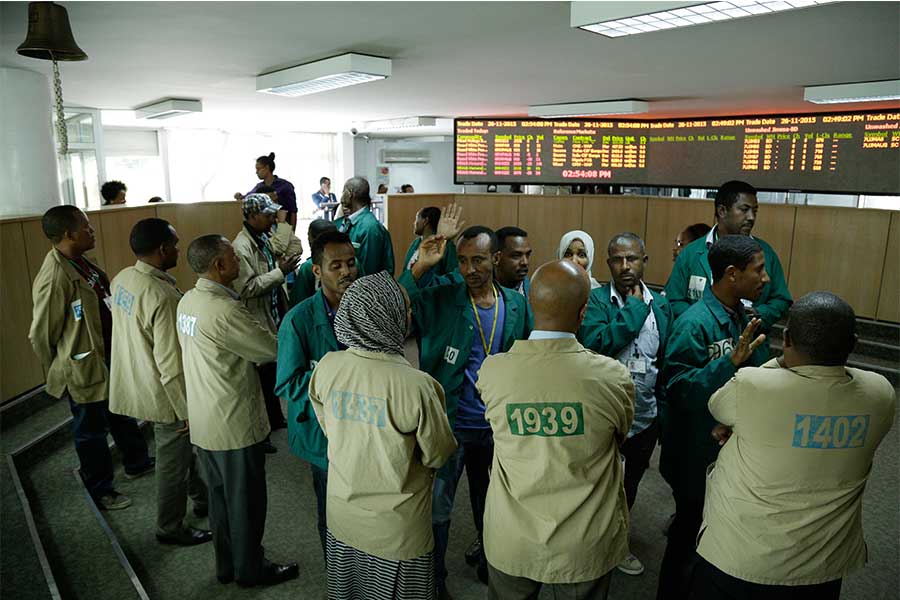
Fortune News | Aug 13,2022
Jun 27 , 2020
By Makeda Kefetew
Undoubtedly, Ethiopia’s feminist movement, in its current form, raises the right points and advocates for the most liberal societal values. Unfortunately, it is not hitting the right mark.
Much of the concentration of the activist’s voices are on social media - Twitter, Facebook and Instagram – especially after the influential #MeToo movement. But it is rarely questioned how it is limited to a section of the population that is removed from the experiences of ordinary women in Ethiopia.
Ethiopia is still predominantly a rural country, with just 20pc of its population living in urban areas. It is also the second-most populous country in Africa with a population of around 100 million, according to the latest estimates. One-fifth of this population has access to the internet. This means that the majority of women in Ethiopia not only face gender-based discrimination but also cannot afford to get access to a platform through which they could be reached.
When women's rights activists in Ethiopia are using these platforms for advocacy, who are they trying to reach? What is their target audience?
No doubt, social media platforms have become a huge part of creating awareness and an important tool for advocacy on public interest issues. Although most Ethiopians do not have social media accounts or access to the internet, we have seen those with voices in the public spectrum utilise social media activism to shed light on or condemn actions that violate women’s rights.
Twitter has been used to put pressure on public officials or those in power to respond to public interest issues. Still, the challenge remains, in Ethiopia’s context social media activism is not enough to bring about the required change to guarantee social, political and economic equality, including protection against gender-based violence.
Even though connecting with our local or public officials and policymakers has become more accessible through social media networks, we must not forget those women with limited access to information. Otherwise, we are leaving a major portion of our fellow Ethiopian women behind.
Let us rewind back to the early years of Ethiopia’s women's rights activism. It was carried out at the grassroots level. One of the most prominent mentions here is the Ethiopian Women Lawyers Association (EWLA), which has been promoting female empowerment and access to justice through litigation involving gender-based violence in many parts of Ethiopia.
Their notable case was adapted into a movie called “Defret,” which resulted in social mobilisation and advocacy that succeeded in changing policies and promoting the amendment of the family law. The Association is currently operating at the weredaand zonal levels in six regions and providing free legal services to women in need.
Over the years, various networks, groups and nonprofit organisations have popped up to create a large and varied platform but have failed to address issues at a grassroots level. At the events and workshops they hold, most of the attendees are from similar backgrounds - well-educated and with access to opportunities, experiences and advantages that do not represent the reality of most Ethiopian women.
The current movement, which fails to consider the framework of intersectionality, is unable to push forward the agenda enough to bring tangible and sustainable change. As it is, it is not enough to bring about the change that we all would like to see - ensuring that Ethiopian women can enjoy their full social, political and economic rights without any form of discrimination, unequivocally, and lead a life without violence and abuse.
To emphasise, let us ask ourselves "for whom are we advocating?"
Is it for the ordinary Ethiopian women who lack formal education and have little to no income?
Ethiopian women with a good economic background are in a better position than the women that do not have access to basic services. The focus should be on underprivileged Ethiopian women, considering the overlapping disadvantages that they are faced with. It is impossible to say that change has come when we are not sure.
An alternative should be a movement that prioritises challenging our institutions and systems and makes them accountable for the discriminatory and unfair policies and laws undermining the fundamental rights of women.
This will be all the more important considering the reports on the rise in domestic abuse during the COVID-19-related quarantine measures. It would be more effective if feminist groups, women’s rights activists and civil society organisations (CSOs) shifted their focus from condemnation on different online platforms to take our prosecutors at the Attorney General to task over why charges are not filed in specific cases.
Why are there not harsher sentences? What are the police doing to meet the rise in domestic abuse cases?
Asking these types of questions will challenge our justice institutions and create accountability and transparency, leading to better policies and laws in favour of ensuring the rights of women.
The least we can do is condemn these violent acts on social media, but dissecting the legal and structural factors that have enabled these perpetrators to exist among our society should make us ask more questions and push us to do more. It is why women’s rights activists should re-examine their strategy vis-a-vis their target audience to better advocate for the vulnerable and invisible women of Ethiopia.
PUBLISHED ON
Jun 27,2020 [ VOL
21 , NO
1052]


Fortune News | Aug 13,2022

Radar | Jul 06,2025

Sunday with Eden | May 13,2023

Life Matters | May 08,2021

Viewpoints | Mar 06,2021

My Opinion | Jan 16,2021

Editorial | Aug 28,2021

Sunday with Eden | Apr 11,2020

Agenda | Aug 17,2019

Verbatim | May 18,2019

My Opinion | 132046 Views | Aug 14,2021

My Opinion | 128443 Views | Aug 21,2021

My Opinion | 126372 Views | Sep 10,2021

My Opinion | 123991 Views | Aug 07,2021





Dec 22 , 2024 . By TIZITA SHEWAFERAW
Charged with transforming colossal state-owned enterprises into modern and competitiv...

Aug 18 , 2024 . By AKSAH ITALO
Although predictable Yonas Zerihun's job in the ride-hailing service is not immune to...

Jul 28 , 2024 . By TIZITA SHEWAFERAW
Unhabitual, perhaps too many, Samuel Gebreyohannes, 38, used to occasionally enjoy a couple of beers at breakfast. However, he recently swit...

Jul 13 , 2024 . By AKSAH ITALO
Investors who rely on tractors, trucks, and field vehicles for commuting, transporting commodities, and f...

Jul 12 , 2025
Political leaders and their policy advisors often promise great leaps forward, yet th...

Jul 5 , 2025
Six years ago, Ethiopia was the darling of international liberal commentators. A year...

Jun 28 , 2025
Meseret Damtie, the assertive auditor general, has never been shy about naming names...

Jun 21 , 2025
A well-worn adage says, “Budget is not destiny, but it is direction.” Examining t...

Jul 13 , 2025 . By YITBAREK GETACHEW
The Addis Abeba City Revenue Bureau has introduced a new directive set to reshape how...

Jul 13 , 2025 . By BEZAWIT HULUAGER
Addis Abeba has approved a record 350 billion Br budget for the 2025/26 fiscal year,...

Jul 13 , 2025 . By RUTH BERHANU
The Addis Abeba Revenue Bureau has scrapped a value-added tax (VAT) on unprocessed ve...

Jul 13 , 2025 . By NAHOM AYELE
Federal lawmakers have finally brought closure to a protracted and contentious tax de...